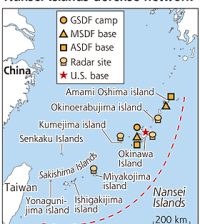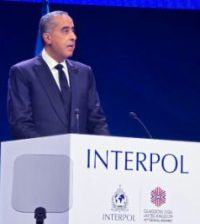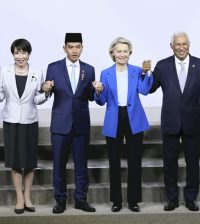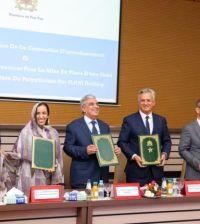- Washington “follows with interest” Morocco’s openness onto Africa (John Kerry)Posted 12 years ago
- The trial of South African Paralympic champion Oscar Pistorius opened in Pretoria on Monday.Posted 12 years ago
- USA welcomes efforts of King Mohammed VI in MaliPosted 12 years ago
- Egypt’s population reaches 94 millionPosted 12 years ago
- Mugabe celebrates his 90thPosted 12 years ago
- Moroccan Monarch to Build a Perinatal Clinic in BamakoPosted 12 years ago
- King Mohammed VI handed a donation of bovine semen for the benefit of Malian breeders.Posted 12 years ago
- Moroccan King’s strategic tour to Africa: Strengthening the will of pan African Solidarity and stimulating the south-south cooperation mechanisms over the continentPosted 13 years ago
- Senior al-Qaida leader killed in AlgeriaPosted 13 years ago
- Libya: The trial of former Prime Minister al-Baghdadi AliPosted 13 years ago
Zuma’s Morocco Visit Exposes Fragility of South Africa’s Pro-Polisario Policy
South Africa’s ruling party is still reeling from former President Jacob Zuma’s landmark visit to Morocco, where he boldly endorsed the Kingdom’s Autonomy Plan for Western Sahara. By declaring that his new party, UMKhonto weSizwe (MK), recognizes Morocco’s sovereignty, Zuma broke decisively with Pretoria’s entrenched hostility toward Rabat and aligned himself with the growing international consensus that Morocco’s autonomy initiative is the only realistic solution to the dispute.
Pretoria’s response has been marked by embarrassment and contradiction. Foreign Minister Ronald Lamola initially claimed the government had “nothing to do” with Zuma’s trip, then threatened to “demarche” Morocco’s envoy in Pretoria over the display of the South African flag during Zuma’s meeting with Foreign Minister Nasser Bourita. However, leaked documents reveal that South Africa’s own embassy in Rabat had requested Morocco to give Zuma an honorable reception—undermining the government’s efforts to distance itself from the visit.
Zuma, for his part, has forcefully pushed back, reminding the ANC that South Africa’s flag belongs to its people, not the ruling party. His stance highlights the deepening ideological rift in Pretoria: while Algeria’s backing of the Polisario separatists is part of its regime’s identity, South Africa’s position is increasingly shaky. The MK party, now the third-largest in parliament, is giving voice to millions of South Africans who reject the ANC’s outdated, Algeria-aligned policy on the Sahara.
For Morocco, Zuma’s visit represents a historic breakthrough. It not only strengthens Rabat’s diplomatic momentum but also exposes the fragility of South Africa’s anti-Morocco narrative. Across Africa, more and more states are backing Morocco’s autonomy plan and distancing themselves from the Polisario’s destructive agenda. Observers increasingly argue that this pro-Morocco shift is irreversible—leaving Algeria and the ANC isolated in their support for a separatist project that undermines stability, peace, and development in the Maghreb and the wider continent.




